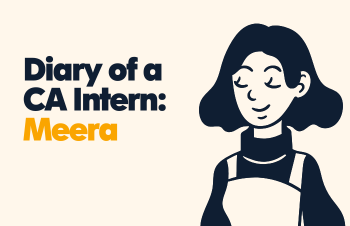Creative Access alum, Luke James, shares his thoughts on returning to the office after nearly two years of working from home during the covid-19 pandemic.
I go back to the office full-time this week and honestly everything about it, aside from the return of the office birthday cake, is making me a bit nervous. The pressure is on, with the government and big business screaming for the country to get back into the office. Coincidentally, those that scream the loudest for this have a huge economic interest in making sure that their lucrative office buildings in the centre of the big cities up and down the country are being used. However, as most of us aren’t property tycoons or postcode millionaires, there are a lot of conflicting feelings around returning to the office.
“I’ve enjoyed a simple life at home not having to worry about things like awkward micro-aggressions”
I’ve got good reason to be hesitant to return to the office, I’ve enjoyed a simple life at home not having to worry about things like awkward micro-aggressions – “no I haven’t brought ‘jerk chicken’ in for lunch again, it’s just last night’s dinner”. I, like many others, am really not looking forward to my creeping social anxiety returning right in the middle of an important pitch, and if I could avoid using public toilets for the rest of my life I would. These issues are ultimately trivial compared to the impact that returning to the office will have on my wallet.
“I do fear that return to the office means, yet again, excluding those from lower-incomes the opportunity to work in our industry”
Full-time office work can add up very quickly. Commuting, the occasional lunch and, unless pyjamas with holes in the crotch become on trend, new clothes will all cost me money. Whilst I’m experienced and fortunate enough to be able to mitigate these costs, it’s my junior colleagues that will be hit the hardest by this. Aside from the obvious (that they are paid less) often our junior colleagues may feel the pressure to spend money to keep up with senior members of staff – I know I certainly did. Couple this with the skyrocketing cost of living, the coming increase in national insurance and energy prices and I do fear that return to the office means, yet again, excluding those from lower-incomes the opportunity to work in our industry. We risk losing those junior members of staff who do not have the capital to survive returning to the office. It goes without saying that those who struggle with mobility or social issues also stand to lose the most. In some ways a return to work can be seen as a step-back for diversity of thought.
“I’ve missed those shared experiences of hearing someone’s good news together, I’ve missed going to the pub to discuss a long day at work, I’ve missed the birthday cakes. It’s easy to forget the human aspect of these jobs that have been mostly solo over the last 18 months.”
It’s not all doom and gloom and I really am looking forward to returning to my office. I’ve missed those shared experiences of hearing someone’s good news together, I’ve missed going to the pub to discuss a long day at work, I’ve missed the birthday cakes. It’s easy to forget the human aspect of these jobs that have been mostly solo over the last 18 months. Perhaps my rose-tinted glasses need some adjusting, but these days I even yearn to watch a colleague chew with their mouth open. I’m fortunate enough to enjoy my job and love where I work, but I know it’s not the same for everyone. It’s an over-simplification to suggest that you should find a working environment that you love – how do you even do that?
Perhaps we should just be grateful that we even have a choice in the first place. Many workers up and down the country don’t have the luxury of working from home at-all, let alone some form of hybrid working. There are genuine benefits to the office, the socialisation aspects, the growth and learning opportunities, the birthday cake – but is this worth the cost of greater autonomy over our day-to-day lives? Is this a step-back in the fight to have a greater work-life balance? How detrimental will all of this be to increasing the level of diversity of thought in the workplace? I’m not sure, but I do know that sales of birthday cakes will surely rise to pre-pandemic levels.




